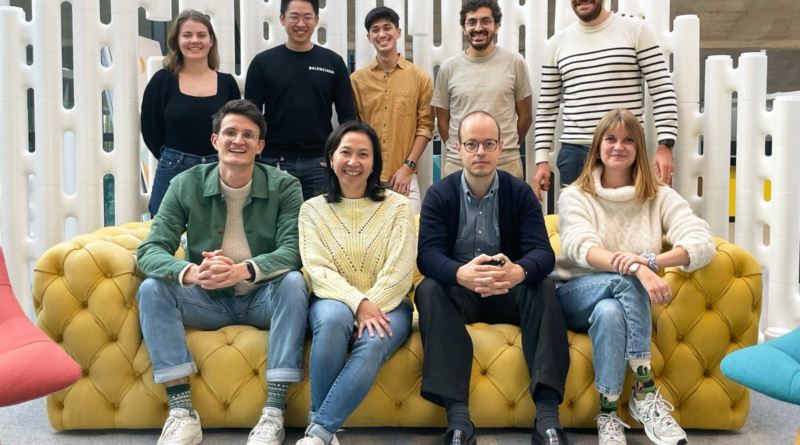Callyope monitors mental health through speech-based technology
French startup Callyope isn’t your average startup as it is addressing a very hard problem in a highly regulated industry. The startup is building a remote patient monitoring platform for people living with schizophrenia, bipolar disorders and potentially other mental health issues. And the company is using the patient’s voice for this monitoring tool.
Callyope recently raised a $2.4 million (€2.2 million) funding round co-led by 360 Capital and Bpifrance’s Digital Venture fund. No Label Ventures and several angel investors are also participating in the round.
In Fance, 600,000 people live with schizophrenia. More than a million people experience bipolar disorders. Many of them see a psychiatrist regularly. But psychiatrists are overwhelmed and can only see each patient every four to six weeks.
“You have plenty of molecules that have been around since the 1970s to more or less stabilize people. And yet, when you go to a psychiatric hospital, half of the people there relapse in the same year,” co-founder and CEO Martin Denais told me.
When you see a psychiatrist regularly, they can usually prevent relapses before it’s too late. That’s why Callyope wants to “enhance” psychiatrists with a patient monitoring system that can alert health professionals. This way, they can book a time slot for the patient the next day.
Instead of asking patients to fill out a form, Callyope uses speech recognition and other soft biomarkers (such as sleep, physical and social activity) to check in with patients on a regular basis. That’s because patients often have issues with the self-perception of their symptoms. They feel like they’re doing fine even though things are worse than the previous week.
“On the patient’s side, we’re still in the early stages of product development,” Denais said. Callyope doesn’t want to monitor you 24/7. Instead, the startup could ask you to answer some simple questions using voice messages. Denais shared some examples, such as “Are you sleeping well at the moment? Does your medication seem to be working well?”
Of course, some patients might not actively record a voice message every week. In that case, a hospital nurse might call you and record the call for analysis purposes.
In addition to the content of the conversation, Callyope analyzes other symptoms. For instance, “with schizophrenia, you have seven symptoms — and one of them is disorganized speech,” Denais said. “With bipolar disorder, you have four or five symptoms. When people are too well, there’s one symptom, which is accelerated speech.”
Training on sensitive data
Unlike other industries, Callyope has to think in product milestones. Once the first version of its proprietary model is trained, it has to freeze development on this version and submit it to health authorities to get the relevant certifications.
“Today, we have very good initial results in the general population,” Denais said. “We get them to fill in short self-questionnaires on anxiety and depression. And we ask them to talk to see if we can detect mild signs early on. So we’ve already managed to show that it works very well, and we’re going to publish a scientific paper early next year.” After that, the company plans to reuse the same technology on patients suffering from depression and schizophrenia.
The startup is currently working with psychiatric hospitals to get data and train its model on this proprietary data with privacy in mind. Eventually, the company wants to have a model that can analyze audio directly on device so that it only sends the results to the psychiatrist.
“Basically, this data will enable us to improve the performance of our algorithm, always with the cardinal point that we only use what the patient wants to give us, and in a completely secure manner from a technical point of view, so that in the long term we don’t have access to anything,” Denais said.




